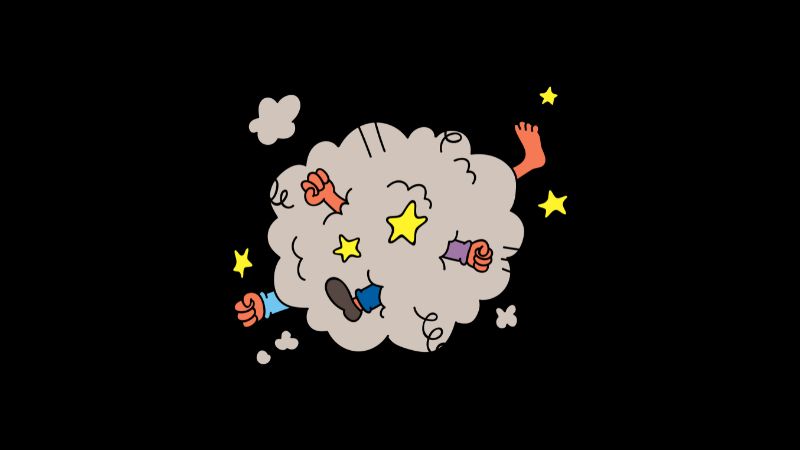
7 Methods On-line Polarization Will Make Your Melancholy Worse
Affiliate hyperlink discover: As an affiliate of BetterHelp and different third-party distributors, We are going to obtain compensation in the event you make a purchase order utilizing the hyperlinks supplied on this web page. For extra info, go to our disclosure web page.
Final Up to date on August 24, 2025 by Randy Withers
The web generally is a lifeline for information, neighborhood and connection. It could actually additionally develop into a stress cooker, protecting you in a continuing loop of shock, anxiousness and division. When algorithms feed you solely the voices you already agree with — and when these voices develop louder and extra excessive — your psychological well being can begin to take successful.
The extra time you spend in these echo chamber media areas, the tougher it may be to drag your self out. With the correct methods, you may cease the cycle, defend your psychological well being and even take pleasure in more healthy on-line interactions.

Why On-line Polarization Is so Damaging for Psychological Well being
Political and social divides aren’t new, however on-line platforms can intensify them in methods earlier generations by no means skilled. Social media algorithms push content material that will get essentially the most engagement, and outrage tends to trump affordable debate, so “clickbait” stays a well-liked advertising and marketing tactic. Due to this loaded digital atmosphere, your feed can rapidly flip into an echo chamber media funnel — a curated stream of single-perspective content material that displays and reinforces your present views.
What are on-line echo chambers? They’re digital environments the place you’re principally uncovered to homogenous opinions and data that match your individual. Whereas this could initially really feel validating, it might additionally shrink your perspective, reinforce stereotypes and make differing views really feel like private assaults. This particularly applies to political and non secular views, the place related opinions appeal to like-minded social feeds, however expressing variations can set off shaming and cyberbullying.
This isn’t only a political problem — it’s a psychological well being one. Polarized digital areas can result in increased stress, better emotional reactivity and deeper emotions of social isolation. When your views are challenged on-line, you might even see it as victimization as an alternative of a wholesome debate. The individuals who “assault” you may accomplish that to defend their entrenched views, not due to you as an individual.
Maybe you’ve additionally launched a tunnel-vision assertion at another person on-line. Actually, over 40% of Individuals report experiencing on-line harassment. The ensuing digital stalking and threats could originate from political opinions, social sharing and feedback.
While you’re already weak to despair, this fixed publicity to high-conflict opinions and emotionally charged content material could make restoration tougher and signs worse.
7 Methods Polarization Intensifies Melancholy
Polarization doesn’t simply form the way you see the world — it modifications how you’re feeling in it. The psychological well being toll could be delicate at first, exhibiting up as irritability or fatigue, however over time, it might deepen into patterns that make despair tougher to handle. Listed below are among the commonest methods it might occur.
1. Boosts the Us-vs.-Them Mentality
A single perspective paints individuals in black-or-white phrases, reminiscent of us vs. them or proper vs. fallacious. While you begin categorizing others this fashion, you threat seeing them as opponents quite than complicated people. This mindset can result in power rigidity, alienation and extra frequent social withdrawal — all of which may deepen depressive signs.
2. Fuels Anger and Rumination
Anger isn’t only a fleeting emotion on-line — it reinforces and amplifies your upset that your candidate didn’t win the election or your staff misplaced the Tremendous Bowl. In polarized areas, it might develop into a continuing state. You would possibly end up replaying arguments in your head, imagining comebacks or scrolling for the subsequent factor to get outraged about.
This cycle of rumination can lock you into unfavourable pondering patterns that make despair extra difficult to handle since you maintain stewing in what’s taking place or has occurred as an alternative of transferring on. Even in the event you scroll on, you get uncovered to extra of the identical.
3. Normalizes Hopelessness About Change
If each put up you see frames the world as hopelessly divided, you could begin to imagine there’s nothing you are able to do to alter it. Over time, this could result in you growing realized helplessness. That is the assumption that your actions don’t matter and is a identified threat for despair. You begin to assume the world is as you see in your social feed, that there’s nothing you are able to do about it and that you’re powerless.
While you solely see footage of conflict, you may imagine that the entire world is combating. A balanced feed would come with present occasions, sports activities, hobbies, leisure and pets. Just a few cute animal movies will help stability echo chambers.
4. Amplifies Loneliness
On-line connections can really feel actual, however they usually lack the depth of face-to-face relationships. When polarization causes you to lose friendships or keep away from social occasions, you might have fewer significant offline connections. That isolation could make depressive emotions extra intense and chronic. With 29% of Individuals affected by despair, isolation rapidly results in medical psychological well being challenges which will require medical intervention.
5. Reinforces Cognitive Distortions
Curated content material usually depends on all-or-nothing language and excessive examples. This fashion of communication can reinforce dangerous cognitive distortions in the event you already battle with depressive pondering. For instance, you could imagine the world is unsafe and that sure teams are fully untrustworthy.
6. Feeds Algorithm-Pushed Echo Chambers
Individuals who spend extra time in echo chambers develop into deeply entrenched of their beliefs and extra immune to new info or any view that challenges their “fact.” This narrowed perspective can gas frustration, distrust and trigger fixed low-level anxiousness, chipping away at psychological well being.
7. Drains Emotional Vitality
Scrolling by means of heated debates and inflammatory content material could be exhausting. This kind of emotional fatigue or compassion burnout can go away you feeling numb or disengaged from causes you care about. That lack of motivation can spill over into different areas of life, making it tougher to seek out pleasure in belongings you as soon as loved.
Break Free and Shield Your Psychological Well being: 6 Paths Ahead
You possibly can’t change how social media algorithms work, however you may take steps to restrict their impression in your well-being. Begin with the following tips.
1. Restrict Your Information and Social Media Weight-reduction plan
Set clear closing dates on how a lot information and social content material you devour every day. Think about using app timers or browser extensions that will help you stick with them. Oppose viewpoint bias by diversifying your info sources so that you don’t depend on solely a single perspective.
2. Rebuild Offline Connections
Make a deliberate effort to attach with individuals in individual. Be part of an area pastime group, volunteer for causes you care about, or spend extra time with family and friends. These relationships will help you’re feeling extra grounded and fewer depending on on-line validation. 3.
3. Apply Cognitive Flexibility
Problem your self to learn or hearken to totally different viewpoints, with out instantly reacting or judging. This will help you break the psychological rigidity that the echo chamber media enforces. Use mindfulness methods, reminiscent of introspection and reflection.
4. Prioritize Restorative Actions
Steadiness on-line engagement with actions that restore your power, like spending time in nature, exercising, journaling or training meditation. These actions assist counteract the emotional drain of polarized discussions.
5. Create Private Boundaries for Political Discuss
Resolve upfront when, how and with whom you’ll interact in political or spiritual conversations. This would possibly imply muting sure subjects, avoiding late-night debates, or letting individuals know you like to maintain discussions respectful and solutions-focused.
6. Search Skilled Help if Wanted
A psychological well being skilled will help you develop coping methods if you end up feeling persistently hopeless, irritable or remoted. Cognitive behavioral or acceptance and dedication therapies successfully break unhelpful thought patterns.
Indicators You’re Breaking Free From the Polarization Cycle
It’s unlikely that you just’ll get up one morning fully free from the pull of on-line echo chambers, however you’ll discover modifications. You would possibly expertise the next:
- Feeling much less emotionally hijacked by information headlines
- Having fun with conversations with individuals you disagree with, with out these changing into heated debates
- Spending extra time on hobbies, relationships and self-care
- Noticing a lighter, calmer temper total
Remaining Ideas
On-line polarization can really feel inescapable, particularly when echo chamber media reinforces your views, however you’ve gotten extra management than you assume. By setting boundaries, looking for numerous views and prioritizing offline connections, you may defend your psychological well being and maybe even rediscover a way of optimism in regards to the world.
Let me know in the event you appreciated this put up. Your suggestions is vital!


